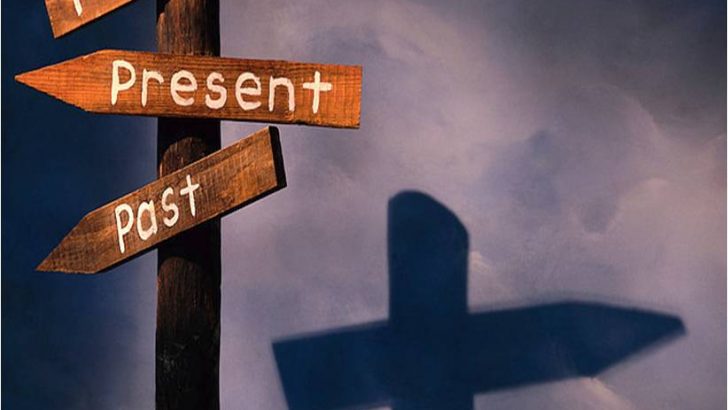Fr Chris Hayden on searching for a destination for Ireland
Remember when the M50 was being widened? Remember the national running commentary on the traffic chaos that arose from what was, metaphorically, an attempt to service an aircraft while it was flying.
Some of the chaos was probably avoidable, and the pandemonium that prevailed for a while at the Red Cow junction seems largely to have arisen from a lack of road-signs.
With scarcely a signpost in sight, what might have looked like the turn-off for Kilmainham could just as easily lead you out towards Naas, and many a motorist met his or her navigational Waterloo at the Red Cow.
Signposts are a blessing. Without them, chaos reigns. But they are absolutely useless to those who do not have a destination.
In contemporary Ireland, our signposts have largely been removed. Many of the authorities we once trusted to guide and direct us have proven unreliable.
For people who grew up with clear guidance, the current crisis is bewildering and embittering, and when signposts are absent for long enough, we may begin to question whether there is actually a destination after all.
Could it be that all those signposts were not merely unreliable, but pointed to imaginary destinations? When this kind of thinking sets in, the nature of chaos starts to change: it is no longer the result of a mere absence of signposts, but the result of the absence of a destination. With neither signposts nor a destination, chaos is the nature of things.
The observation that ours is a rudderless, signpost-less, destination-less generation could sound judgmental and moralistic, but it is actually the most compassionate and realistic thing one can say about the present time.
The notion that Ireland has become wiser and freer is adolescent and vacuous, and those who trumpet it are like some of the prophets of old, who proclaimed peace where there was no peace.
Jesus once looked at a large crowd who had been following him and, we are told, he felt compassion for them, because they were like sheep without a shepherd.
In his compassion, Jesus offered the crowd a destination, one towards which he was, himself, the signpost. In our time, however, the office of shepherd has been compromised and any mention of sheep is likely to be heard as condescending. But the challenge remains — to present Christ and his message as the lovely, wise and life-giving truth that they are.
For Irish Catholicism, the proclamation of the Gospel cannot wait until Church credibility has been restored.
The task is too urgent, and in any case, things are the other way round: the only way for the Church to be credible is to proclaim the Gospel, and to do so in a way that offers a clear alternative to the sadness and cynicism of our time.
This is a far more fundamental issue than the management and ethos of schools, or Church-State relationships, or the response to falling numbers of clergy, important though such matters may be.
Priorities
We cannot crisis-manage our way to faith, and to attempt to do so is to put the cart before the horse.
That said, talk about fundamentals and priorities can seem abstract, or even grandiose, unless we have some sense of our own, personal foundation as believers.
Concretely, where does faith enter our lives and begin to buoy us up, giving us direction and meaning? The very best starting-point for the answer to this question is the opening line of the Bible: ”In the beginning, God created the heavens and the earth.”
Christian faith in its entirely rests on the foundation of a belief that the universe is not a cosmic fluke, and that human life is more than the complex outcome of a long chain of cause and effect.
In the Christian understanding, the energy at the heart of the universe is even more fundamental than the energies that are described in such marvelous detail by physics and astronomy.
The fundamental energy is fatherhood, the fatherhood through which God has brought reality into being. And so we are, in the words of Benedict XVI, ”not a lost atom in a random universe”. We are not the result of necessity or chance, but have been willed into existence.
This is vastly more than the piling up of words in some theological game. The faith knowledge that we are called into existence, held in existence by God, changes the way people live — and indeed the way they die.
The great 20th Century philosopher-martyr, Edith Stein, who was sent to her death in Auschwitz in 1942, had earlier written: ”In the knowledge that being holds me, I rest securely and objectively speaking, this kind of security is not less rational. For if a child were living in the constant fear that its mother might let it fall, we should hardly call this a rational attitude.”
Finally, it’s comforting to note that the Bible’s opening statement was written in a time of chaos and upheaval. It is widely accepted that the earliest books of the Bible were completed just after the exile in Babylonia, a period during which the people of God had experienced profound political and social chaos.
Against that background of upheaval and bewilderment, the inspired writer insisted that God’s creative power is at the heart of reality. The God who created by drawing order from chaos can work creatively with any contemporary chaos.
When we hold this faith, we discover that it is no mere mental abstraction: it holds us — it guides us and gives us the hope that we need to live creatively, without giving in to bitterness or despair.



